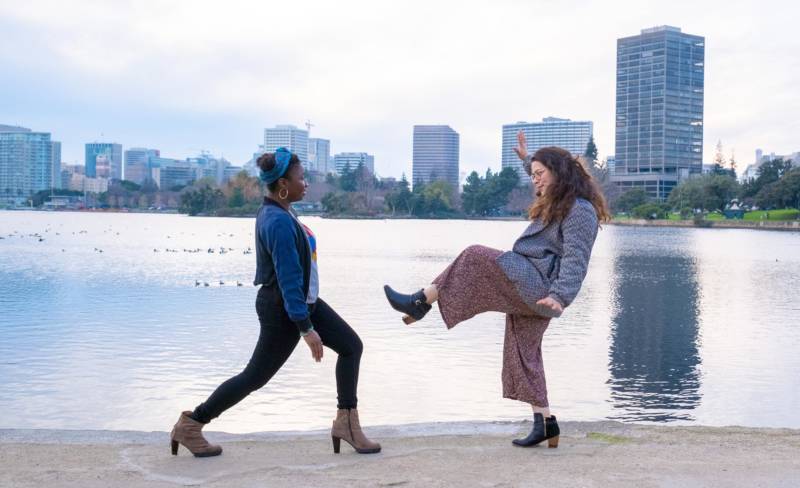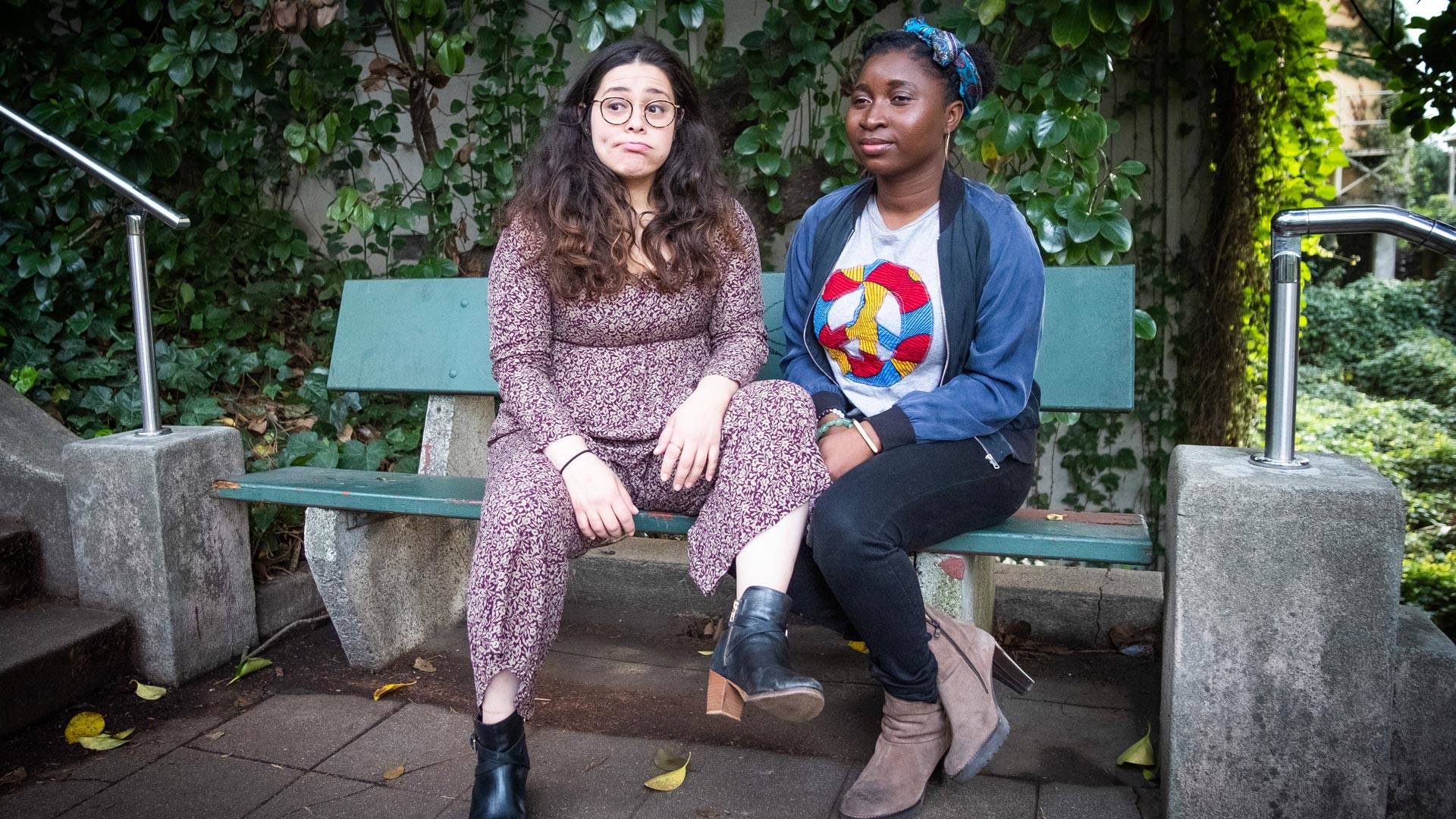What’s it like to be a first-generation college graduate surviving in a rapidly gentrifying Oakland, all while trying to navigate job-hunting, foster friendships and deal with the daily struggle of trying to stay put in The Town?
With the new web series Uneasy, local writers and filmmakers Samiat Salami and Vanessa Flores tackle this very question—with an added cultural layer. Salami is Nigerian-American, and Flores is Guatemalan-Mexican-American.
“With this series, we wanted to showcase what it’s like to come from post-military Nigeria, and also what is like to be Latinx and not speak Spanish, and how it affects your culture,” Salami tells me during a recent chat at a local coffee shop in downtown Oakland.
Some might see in Uneasy a correlation to Insecure, but unlike Issa Rae on her hit HBO show, don’t expect Ade (Samiat Salami), and Cat (Vanessa Flores) to be preoccupied with their love lives. The roommates’ biggest worries are housing, finances, and interpersonal discovery. (A closer comparison might be The North Pole, the 2017 web series that tackled gentrification; both series are written and directed by people of color, and both are shot in familiar settings throughout Oakland.)

Uneasy‘s two main characters are roommates. Ade is struggling to stay in the apartment with Cat; a recent graduate, she has yet to find a job, and can’t afford to pay rent. She wrestles with her friendship with Cat, and how to develop friendships with other women, and black women specifically—a conflict that Salami says came from real life.



